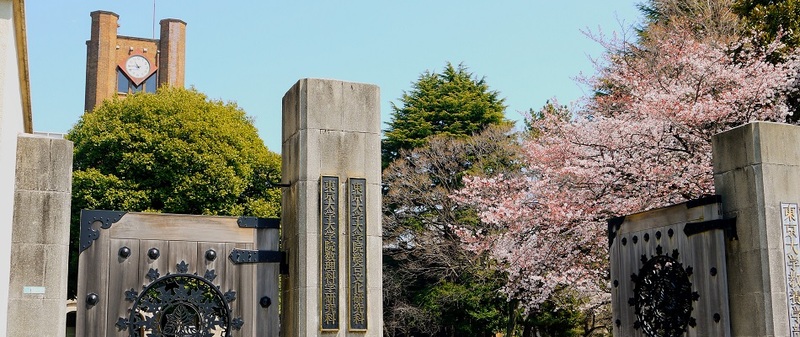What is Komaba Slang?
Komaba campus is known as the smaller UTokyo campus, where undergraduate students belonging to the general course usually spend their first two years, and PEAK and Liberal Arts students spend all four years of their undergraduate life. Due to this eclectic and unique mix of students at Komaba, there exist certain words that you may hear quite often on campus, especially from the Japanese students. Don't worry international students, we hear you as well! This article explains this comical and peculiar vocabulary, termed as 駒場用語 (komaba-yougo) or Komaba slang, so that you can use these with your Japanese friends and/or international friends to better express some of the quirky experiences Komaba has to offer.
List of Komaba Slang
1. 〇〇クラ (〇〇-kura)
Short for クラス(kurasu) which means class. A person from the same class is 同クラ(onakura or doukura), while someone from the class one grade above is 上クラ(uekura) and from the class one grade below is 下クラ(shitakura). In principle, the upper and lower classes are determined by which foreign language you have taken as your compulsory course.
It can be interesting to trace the genealogy of one's uekura... One of the uekura many years back of one of our writers is a certain famous politician-professor!
For Japanese undergrads, the uekura are usually there to support the new students for a while after they enter the school, so they can count on them for various things!
2. サーオリ(saa-ori)
Short for サークルオリエンテーション (saakuru orientayshon) which means the orientation for clubs and circles. This refers to the orientation that the new undergraduate students receive in the beginning of April from the numerous clubs and circles that exist on Komaba campus. It is quite useful in helping the students get to know what clubs and circles are there and to decide which ones to join.
3. オリ合宿 (ori-gasshuku)
It refers to the オリエンテーション合宿 (orientayshon-gasshuku), a two to three day camp, often held at the UTokyo lodge near Lake Yamanaka, in which the uekura (explained earlier) help their newly admitted shitakura (also explained earlier) to understand life and studies at Komaba better by giving them a rundown of the various procedures they need to go through and advice related to choosing class and other things related to studies.
4. 新歓 (shinkan)
It refers to the period of circle orientations during which clubs and circles on Komaba campus hold several events to attract new members and actively recruit. There are mainly two periods of shinkan: Spring and Autumn. Spring Orientation (haru-shinkan) takes place mainly during April-May, during which spring entry students decide which clubs and circles they want to join. Autumn Orientation (aki-shinkan) takes place during September-October, and although slightly smaller in scale than spring, is a great opportunity for September entry students (such as PEAK students) to explore circles.
5. テント列 (tento-retsu)
The tento-retsu is the row of circle/club tents which are put up on Komaba campus in April during the Spring Orientation (haru-shinkan). They are known for their characteristic envelopment of the entirety of the Komaba campus and the aggressive touting that the circle/club members do to recruit new students.
6. 追い出し (oidashi)
It refers to the process of rewriting the record of a poorly grade by getting a better grade in another subject. Depending on how the course is taken, it is possible to do an oidashi of only one credit for two credits.
7. シケ対 (shike-tai)
The shiketai is the unofficial representative appointed by voting by a class to be in-charge of taking the lecture notes, recordings and preparing notes for exam study of a particular subject. Undergraduate students rely heavily on intelligent shiketais to pass their final exams. A very useful system in place at UTokyo.
8. マーク下 (maaku-shita)
Maaku-shita literally means under the Mark and refers to the spot below the Shibuya Mark City (https://www.s-markcity.co.jp ). It is used quite frequently by undergraduate students at Komaba who gather regularly at Shibuya, and is used to denote that spot as the regular meeting point for students, especially when they are in large groups. No one knows how Mark City came to be known as Maaku-shita, but the name has stuck for posterity.
9. 逆評定 (gyakuhyoutei)
The gyakuhyoutei is book sold on Komaba campus by a certain student organization which rates the professors and courses taught by them at Komaba campus. Unfortunately, it is only available in Japanese, but if you can read Japanese, do get your hands on it just for its comical style. You can say it is a Japanese book version of www.ratemyprofessors.com.
11. 不可る (fukaru)
It means to fail or get 不可 (fuka) in a subject. Alternative slangs include 不可は良・不可妥協子、可不可 (fukawaryou, fukadakyouko, kafuka) which indicate that your grades are less than satisfactory.
12. いのヘッド (ino-heddo)
It refers to the Keio-Inokashira Line (which is written as 京王井の頭線 and 井の頭 can be read as the ino-heddo or the head of the well), which is used heavily by UTokyo students who commute to Komaba campus.










